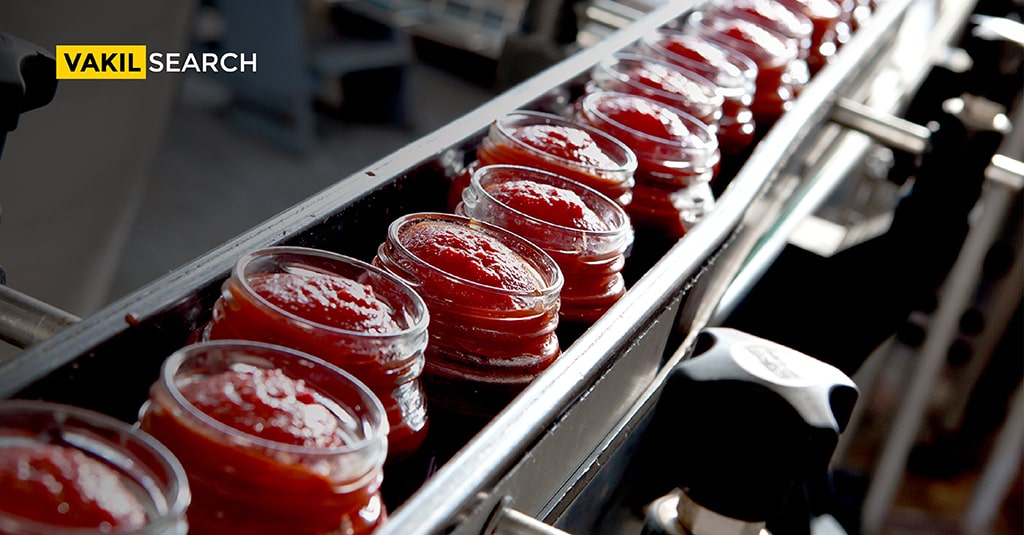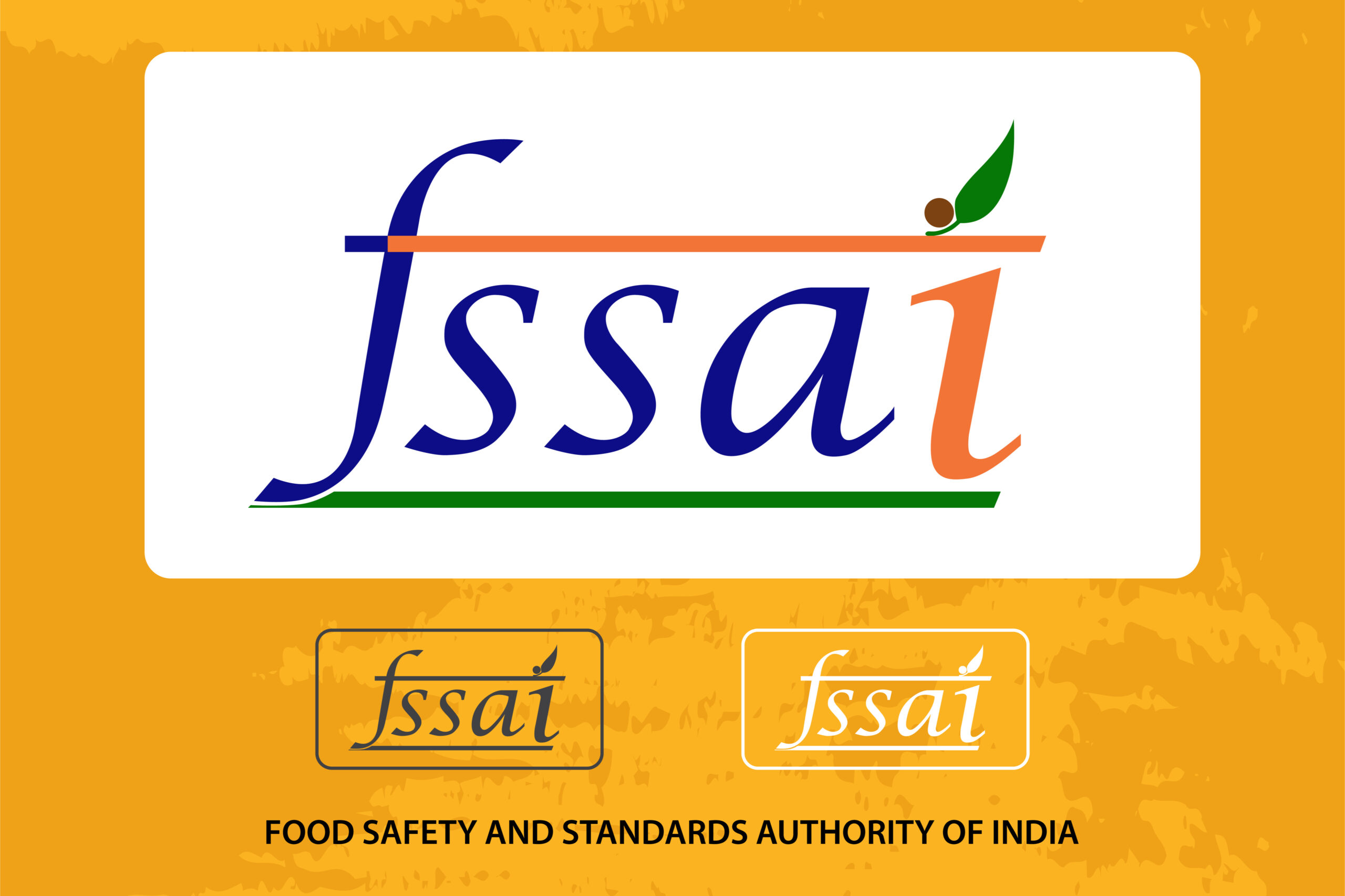If you wish to have a business that makes and sells food products, then this article will give you all the answers. However, if you feel overwhelmed, fret not. Contact us at Vakilsearch and we’ll guide you through setting up your own food processing unit.
India is a country that generates most of its revenue through its agrarian economy. India is the sixth-largest country in the food and grocery market and the fifth largest retail market at the global level. Know How Start a Food Processing Unit in India.
The food processing industry in itself is an emerging space and is seen as the potentially leading industry of the near future. In this article, we will show you how to set up your own food processing unit. If you don’t have the manpower, then you may consider reaching out to our team of experts at Vakilsearch, we will guide you in setting up your own unit.
Italy, on April 17, launched its first-ever mega food park project in India involving food processing facilities amid efforts from both sides to further ties between the two nations. This pilot project named “The Mega Food Park” was launched, with the signing of a letter of intent between the ICE office in Mumbai and Fanidhar mega food park, in Gujarat.
What Is the Concept of a Food Processing Unit?
Food processing units include all the methods and techniques involved in converting a raw material or a combination of raw materials into a consumable product. Food processing units are an integral part of practices such as agriculture, horticulture, plantation, animal husbandry, and fisheries. It also includes other industries that use agricultural inputs for manufacturing edible products. This manufacturing industry has become a site of investment and profits.
The net worth of the processed food industry is estimated to be around ₹1100 crore and it is fast accelerating at a rate of 10-15% per annum. The food processing units comprises nine categories based on the basic raw materials being used.
Importance of Food Processing Units
Food processing is an essential process that ensures we have food throughout the year irrespective of its seasonal nature or easily perishable variety. Mass production of these processed foods can be very profitable unlike those made by an individual.
Benefits of Investing in India
- In India, this is a prospective industry due to the increased demand by the majority of the urban middle-class population
- Availability of raw materials is abundant
- Change in the consumption patterns
- Comparatively low cost of production
- Attractive fiscal incentives that make India the best option.
How Do I Start a Food Processing Business in India?
The Indian government has laid down many policies and schemes to help set up food processing units in India and to provide them with financial support to modernise the industry.
In order to start any food-related business, an food & safety licence is mandatory. There are different types of FSSAI FoSCos licenses available and it varies according to the business type. However, there are certain procedures to be followed in order to legally safeguard the company, such as:
Business Research and Market Analysis
Understanding the market and choosing the product to be manufactured is the most crucial part of starting any business. While choosing the product, the investor must keep in mind the viability of the product in the market. It is also important to research the economic and industrial outcomes of the current food processing industries, which will be useful in determining the market size, competitors and their trends.
Once the basic market research is done, the business must be structured according to the needs to make it legally stable. There are options such as private limited company, public limited company, partnership firm, Limited liability partnership, etc. with their own pros and cons.
These choices can be made on the basis of the size of the manufacturing industry and the yearly turnover and other mandatory criteria. It is recommended to seek help from legal professionals who can advise on the types of companies.
Location of the Factory
Deciding upon the market size is necessary to find a suitable location for the factory. It is advisable to determine a location that has feasible and easily accessible resources such as manpower, raw materials, electricity sources, transportation facilities, etc.
Another important factor to consider is the government provided subsidies and tax exemption in some states of India. An ideal location can be derived by analysing these factors along with the availability of raw materials in a certain location.
The perishable nature of food and duration must be taken into consideration in order to maintain good produce throughout the year.
Business Plan and Strategies:
All the research and analysis made at the beginning must then be streamlined as per the requirements of the processing units.
New policies and strategies must be formulated for the company to generate a blueprint of how the company should function and the future plans must be roughly decided. In the case of food processing units, one needs to bear in mind the future outcomes of the industry and the growing trends too.
Funding
Every business needs to be funded for bringing in the materials and maintaining the value chain once the industry grows. The funds also tend to vary according to the size and nature of the industry. So it is important to have shareholders and to find a constant source of funding for the company.
Legal Implications
Once a company is formed, it has to be registered with the relevant authorities before the business is set into motion. The Companies Act 2013 specifies that the companies must be registered by submitting certain documents and requisite forms in order to get themselves registered as a company in India.
The company must also get registered for the various taxes such as PAN, Sales Tax, Excise & Customs Registration, Service Tax, etc. the trademark must also be protected from being claimed by others, so an IPR registration which includes patents, copyrights, etc. is mandatory.
Other acts such as Food Safety and Standards Act, 2006 and the Standard and Weight Measure Act must be followed and various licenses for operating in India, such as trade license, food license, industrial license, etc. is necessary.
Implementation
With all the necessary steps to start a food processing unit ready, it is important to strategically implement all the mandatory requirements. Everything needs to be put into place. The human resources and infrastructure must be regulated and separate divisions of workers must be used to improve the sales and quality of the product.
FAQs
How much does it cost to set up a food processing unit in India?
The cost of setting up a food processing unit in India varies based on scale, location, and infrastructure. On average, it can range from a few lakhs to crores, covering expenses for equipment, facilities, licenses, and operational costs.
What license is required for food processing in India?
Various licenses are required for food processing in India, including FSSAI registration or license, GST registration, and other specific permits depending on the nature and scale of the business. Complying with regulatory requirements is crucial for a legal and successful operation.
Is the food processing business profitable?
The profitability of a food processing business depends on factors like market demand, product quality, and cost management. With strategic planning, innovation, and adherence to industry standards, food processing businesses can be highly profitable, catering to the growing demand for processed and packaged foods.
What is the budget of the food processing business?
The budget for a food processing business varies widely based on the size and scope of operations. Small-scale ventures may require a few lakhs, while large-scale setups can entail crores of rupees. Budget considerations include equipment, infrastructure, licenses, and working capital.
Which food business is most profitable?
Profitability in the food business depends on market trends and consumer preferences. Currently, businesses focusing on health-conscious and specialty foods, organic products, and innovative snacks tend to be more profitable. Researching market demands and staying updated on trends is essential for identifying lucrative opportunities.
How do I start a small scale food processing industry?
To start a small-scale food processing industry, conduct market research, create a detailed business plan, secure necessary licenses, and identify a suitable location. Acquire essential equipment, establish quality control measures, and focus on marketing. Connecting with industry experts and utilising government schemes for small enterprises can aid in successful establishment.
Read More:-









